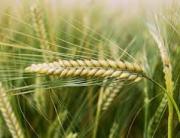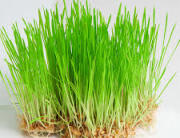 There are many juicers available in the market. Many people think that it is easy to choose a juicer, but end up getting confused about the choices available to them when they attempt to purchase one.
There are many juicers available in the market. Many people think that it is easy to choose a juicer, but end up getting confused about the choices available to them when they attempt to purchase one.
There are several considerations when it comes to choosing the best and most appropriate juicers for your needs.
Here are some tips to consider when purchasing a juicer.
- No single juicer is capable of juicing each type of vegetable or fruit
- Fruits and vegetables are different since they vary in their hardness, softness and amount of juice. Juicers differ in their ability to juice different vegetables and fruits.
- It is necessary to figure out what kind of vegetables and fruits will be juiced prior to buying a juicer.
Aside from the tips above, below are some considerations you will need to think about in order to determine which juicer to buy.
What will you juice?
As mentioned, most juicers cannot juice all kinds of vegetables and fruits. It is therefore important to know what fruits and vegetables will often be used.
The most common fruits and vegetables like beets, carrots, citruses and apples are easy to juice and most juicers can process them.
The same cannot be said for other plants such as berries, green vegetables and stone fruits since these are harder to process. Some kinds of juicers may not produce the juice correctly for these food items.
Also keep in mind that tropical fruits are the hardest ingredients to juices. Kiwis, pineapples and mangos are probably the hardest to convert into juices since they demand a lot of power from the juicers for their conversion into juices. Other food items that are difficult to juice are the berries like strawberries, raspberries and blueberries.
The kind of juice
Juicers come in two types– the centrifugal and low RPM. These two produce different kinds of juices and also differs in their storage life and even in taste.
The low RPM juicer produces juices that have stronger flavors or taste and they often have bits of pulp. Juices processed by a low RPM juicer can be kept for 24 hours inside the refrigerators. Plus, the juices from this type of juicer have no foam.
On the other hand, centrifugal juicers produce juices that are watery. Juices from this juicer is best consumed immediately rather than be kept for hours. Centrifugal juicers also produce juices with foam on their surface.
The amount of juice
Centrifugal juicers are best for users who want to produce juices in large quantities in a single juice processing session since these juicers are faster compared to low RPM.
Low RPM are slower and as such it is best for users who do not have to produce big amounts of juices in a short period.






Leave A Comment